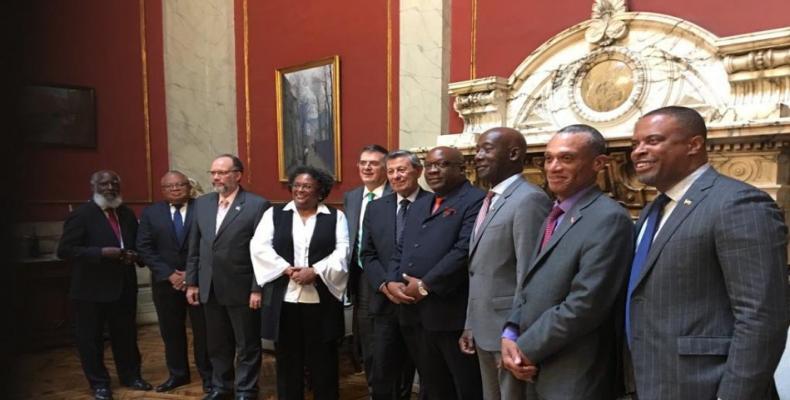Mexico City, November 19 (RHC)-- Countries of the Caribbean Community (CARICOM) together with Uruguay and Mexico endorsed the commitment to "contribute to the Venezuelan people being able to find a peaceful and democratic solution to their differences, in order for Venezuela to achieve peace and stability."
During the visit by Uruguayan Foreign Minister Rodolfo Nin Novoa to his Mexican counterpart, Marcelo Ebrard, a bilateral meeting was held as part of the "Montevideo Mechanism," a tool created in February of this year to provide a solution to the political conflict in Venezuela.
As a result of the meeting, the "Mexico Declaration" was issued, a document in which the member countries of the Montevideo Mechanism emphasized their willingness to contribute to a peaceful and democratic solution that would allow Venezuela to achieve peace and stability.
Countries called on "all actors to resume the path of a broad, credible and inclusive dialogue." The document states that "in light of the fact that other initiatives have not prospered, we endorse our position in favor of a dialogue based on impartiality as proposed by the Kingdom of Norway."
They also "reiterated" to the Venezuelan actors "the willingness of the Montevideo Mechanism to accompany any initiative for inclusive dialogue within a framework of respect for the principles of non-intervention, the legal equality of States, the peaceful settlement of disputes, respect for human rights, constitutional order and the self-determination of people".
In addition, they expressed their "concern" for the humanitarian situation in Venezuela, and in this regard "categorically rejected the activation of the Inter-American Treaty of Reciprocal Assistance (TIAR), as it is an instrument designed to stop aggressions between states, not to address humanitarian situations. Uruguay voted against the invocation of this treaty and then announced its withdrawal from it.
Towards the end of the document, they expressed appreciation to Gustavo Béliz, a member of the transition team of Argentina's elected President, Alberto Fernández, and "invited" this country "to join the Montevideo Mechanism, once the new government takes office," on December 10th.
During his stay in Mexico, Uruguayan Foreign Minister Rodolfo Nin Novoa also visited former Bolivian President Evo Morales, who is in that country after his resignation on November 10.
Nin Novoa "expressed his total rejection to the interruption of the constitutional order in Bolivia" and made a "call for free, transparent and credible elections in the shortest possible time, as the only way to resume the path of democratic institutions and recover the rule of law."


